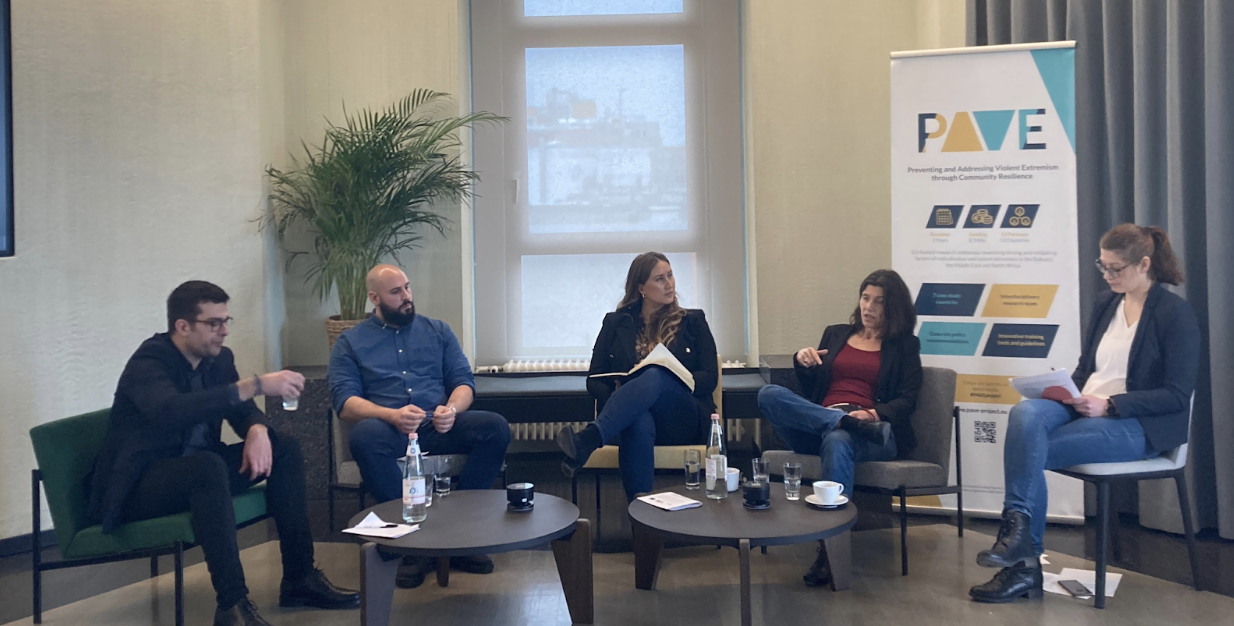PAVE Project Hosts Policy Roundtables in Europe
February 2023
As part of the European Union funded ‘Preventing and Addressing Violent Extremism through Community Resilience in the Western Balkans and the MENA,’ (PAVE) project, a series of policy briefs have been developed to exemplify how to support a local multi-stakeholder approach to prevent and counter violent extremism in the project’s focus countries.
As part of the policy recommendation launch, a roundtable was hosted in Granada, Spain with EU officials and frontline practitioners from across Spain. PAVE Project partner Euro-Arab Foundation for Higher Studies hosted a discussion which reflected on an empirical analysis based on research carried out in Iraq, Tunisia, Lebanon and with North African diasporas in Europe. Participants focused on how the policy recommendations resonated within their work and how they can be best actualized to mitigate vulnerability and resilience factors in the country and broader region.
A subsequent policy roundtable was hosted by PAVE project partner, the Berghof Foundation, in Berlin, Germany to discuss how multi-actor cooperation can work to prevent violent extremism in the EU and the neighboring countries around Germany.

As a PAVE project partner, the Network for Religious and Traditional Peacemakers gave a presentation which showcased its policy guidelines that actualize the recommendations made within the policy roundtable recommendation discussions, focusing on showing how to implement and support local multi-stakeholder collaboration to prevent and counter violent extremism.
About the PAVE Project
The European Union funded ‘Preventing and Addressing Violent Extremism through Community Resilience in the Western Balkans and the MENA’ (PAVE) research project (2020-23) tackles the global issue of radicalization by examining its root causes and driving factors with focus on community level resilience and vulnerability analysis. Research conducted in selected municipalities of Bosnia and Herzegovina, Kosovo, Tunisia, North Macedonia, Iraq, Serbia, and Lebanon, revealed that the integration of multi-stakeholder approaches within community and national policies and programs to prevent and counter violent extremism and strengthen community resilience to violent extremist radicalization and recruitment.
Follow the Network on social!
